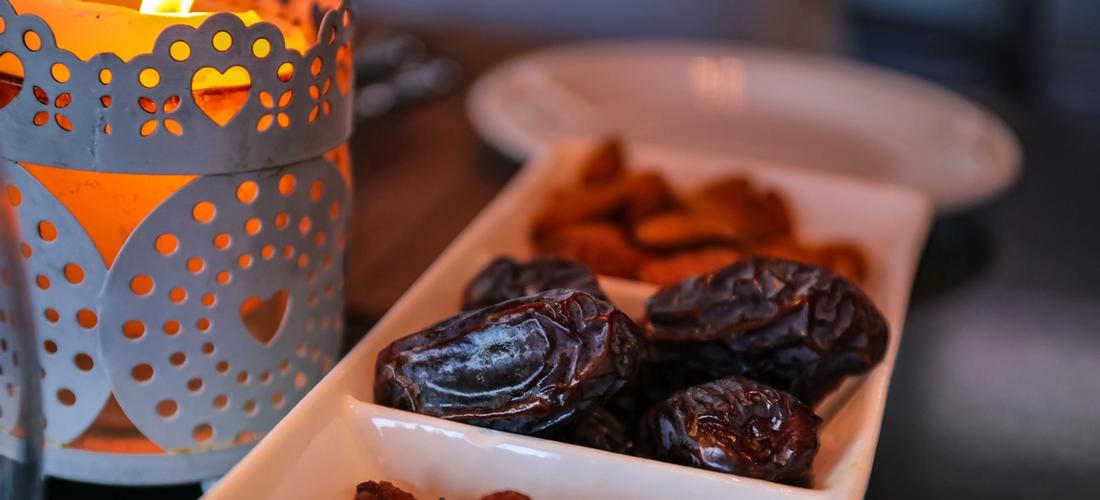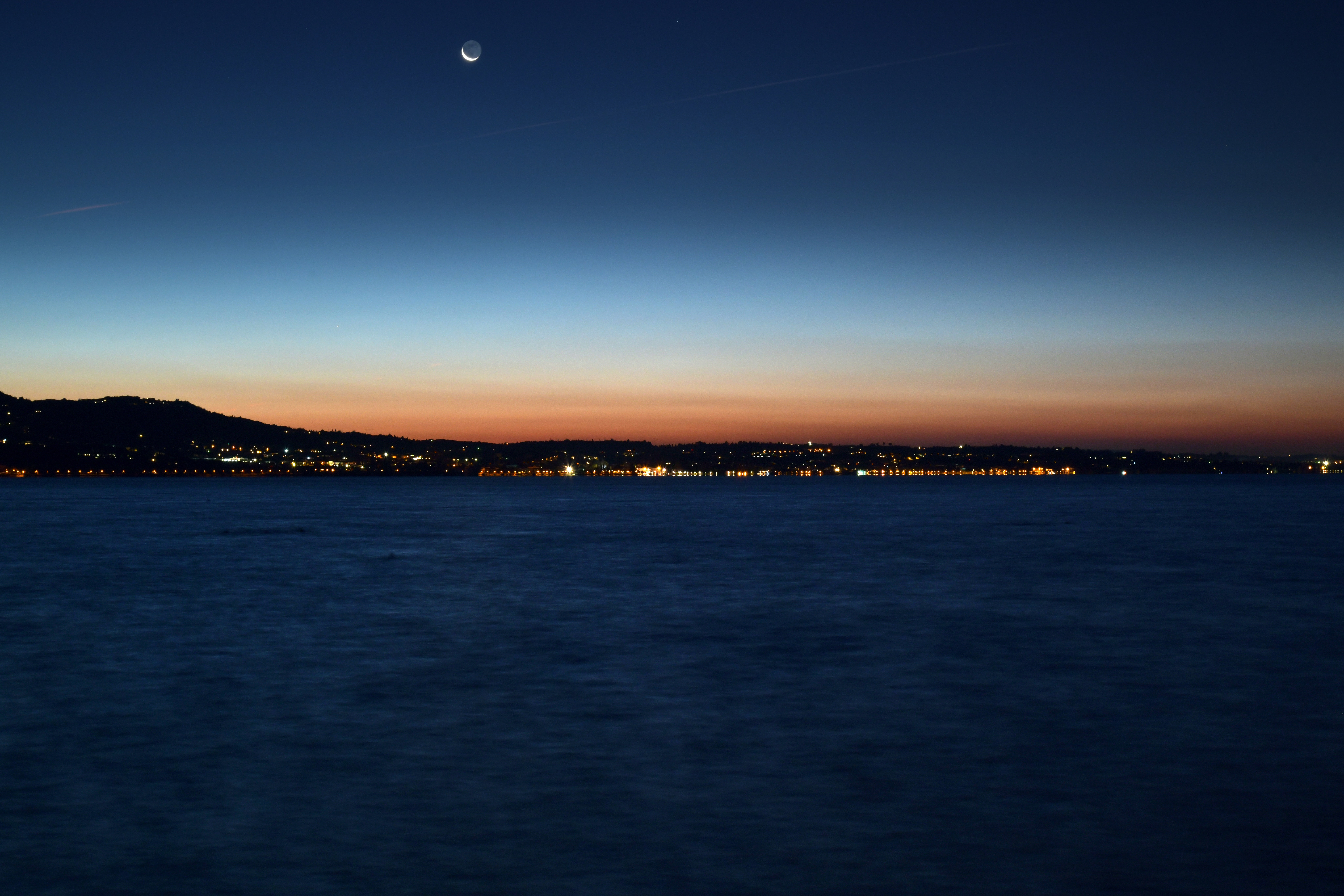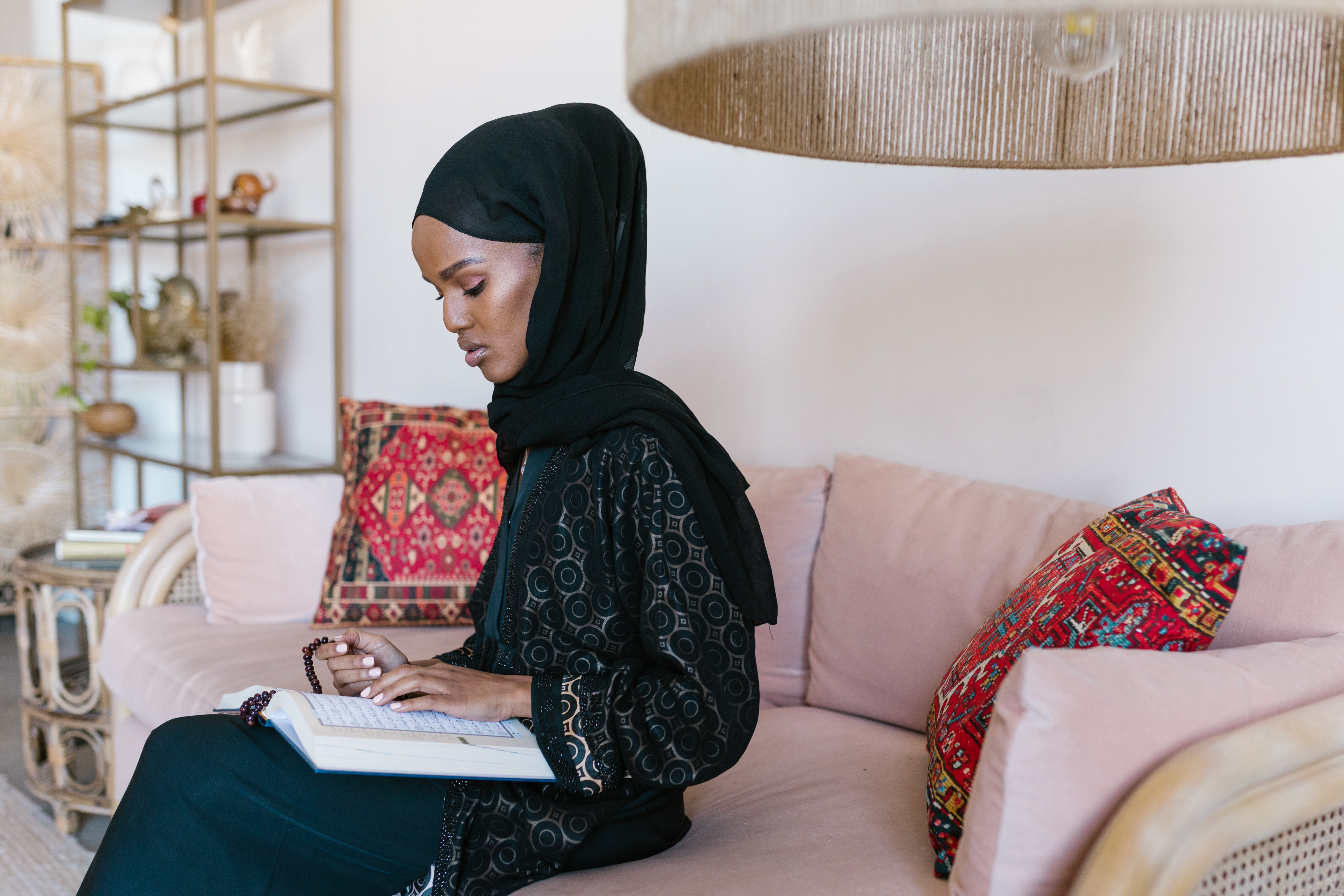Ramadan 101: Answers to the Basic Questions About the Fasting Month
Faith
|
Apr 12, 2021
|
9 MIN READ

Image Source: Pexels, Naim Benjalloum
Every Sha’ban (the month preceding Ramadan), my best friend and I talk about my first Ramadan so long ago. Like many Muslim converts, I learned over time how to fast efficiently and think of ways to optimize my worship and self-reflection during the month, but when I first converted, the concept of fasting for a whole month fascinated and scared me.
I was blessed with my friend and her family, who guided me through it. I asked a lot of questions in the days leading up to Ramadan. The answers to all of them escaped me the first day as the excitement for a new way to worship in my new faith-filled me.
The first fast of Ramadan is thrilling, but it can also bring a heavy sense of responsibility. Nobody wants to “mess up.” Fortunately, Allah (S) is merciful. He provided guidance in the Quran and through the Prophet Muhammad (saw) so we can learn how to fast, thereby gaining his pleasure. In exploring a day of fasting, one may find a lot of beauty in its simplicity.
No question is too small or insignificant when you are learning about Ramadan fasting. I’ve tried to answer as many questions and identify Islamic terms for those who are fairly new to fasting (or anyone who needs a refresher). This doesn’t cover everything, because you could write pages and pages about how to “do” Ramadan. But I’ve tried to cover most of the things we wonder about as new(er) Muslims. So, let’s get started!

Why do we need to fast?
Fasting is one of the five pillars of Islam (the five being shahada, testifying that one is Muslim, believes in Allah (S) and that the Prophet Muhammad (saw) was His last Messenger; salah, or prayer; sawm, or fasting in Ramadan; zakat, or annual charitable giving; and performing the Hajj pilgrimage once in a lifetime, as long as the person is physically and financially able to). Ramadan is the ninth month in the Islamic lunar calendar. And, fasting was prescribed in the Quran for all Muslims (not children) who are healthy enough to do so.
Muslims fast because Allah (S) prescribed it for us. It helps us grow closer to Allah (S) through our worship. We do it for the sake of Allah (S) - this is the reason. But, we also learn many important lessons through fasting, such as the importance of engaging in charity, what hunger feels like and thereby hopefully gaining more compassion towards those in need.
How long do I fast, and what is my first meal?
While fasting, a person does not eat or drink anything from before sunrise until after sunset. They will also refrain from sex, and, ideally, control their anger and avoid behavior that will compromise their fast (gossiping, lying, stealing, etc.). To prepare for hours of restraint, fasters get up and eat Suhoor (aka Sehur, Sehri, Sahari and Sahur), the pre-dawn meal. Although many Muslim subcultures have traditional food for the meal, fasters have the liberty to decide what they want to eat, stopping about 20 minutes before the Fajr (pre-dawn) prayer time.
It is important to wrap up your eating before Fajr time. However, let’s be clear: Many of us do not make it. Anyone still munching when the prayer time starts should finish eating what in their mouth. Once their belly is full (it will empty soon enough), a faster may decide to brush and floss before the eating time closes and fasting starts.
What can’t I do while fasting?
Fasting, at its foundation, sets up parameters of what one should not do (i.e. do not eat, drink, have sex, et.), which often leaves fasters wondering what they could or should do. No eating or drinking, fine, but what about rinsing the mouth during wudu? No sex, all right, but is it okay to kiss one’s spouse? The list of things that invalidate a fast is short. Here are seven things that potentially break a person’s fast:
1. Intercourse
2. Masturbation
3. Eating and drinking
4. Ingesting substances (e.g. medicine) into the body
5. Smoking
6. Letting blood by means of cupping and the like
7. Vomiting deliberately
8. Menstruation and nifaas
[source: islamqa]
Rinsing one’s mouth for wudu and brushing teeth do not break the fast, neither does touching or kissing one’s spouse, as long as fasters avoid intentional ingestion or sexual arousal. A goodbye peck and hug before work is fine, but save the hanky panky for after the sun goes down.
Showers/ghusl are okay too. If water is ingested by accident, continue to fast. Try not to swallow water when rinsing the mouth, brushing teeth (with or without toothpaste) or rinsing the nose.
Anyone who needs to administer maintenance medication (i.e., injection, inhaler, eye drops, etc.) should research further and talk with their medical professional. Although the majority of scholars conclude that inhalers, eye drops and injections (including COVID-19 vaccines) generally do not invalidate fasting, it is a good idea to confirm things for one’s self.
If you accidentally take a bite of something or a sip of liquid, forgetting that you’re fasting, it’s ok. Don’t worry. You haven’t broken your fast. It was a mistake and you can continue fasting, as Allah (S) is merciful.
When do I break my fast and how?

Ramadan days vary across the globe, with the length of fasting ranging from 12 to 18.5 hours or more. Where I live in New York, fasting will be about 14.5 hours at the beginning of the month and almost 16 hours by the end. Once it’s Maghreb time where you are, it’s time to break fast. Break your fast as soon as Maghreb time starts. Don’t delay it any further. The length of fasting may be less than it was last year, but hunger will prevail, requiring some heavy thinking about what to eat after sunset. One can easily gorge and end up too tired for anything but an early bedtime.
Iftar (aka futoor) is a critical meal during Ramadan. Empty stomachs can present a powerful challenge to one’s willpower, strengthened while fasting. Everything looks tempting, testing our restraint, but it is important to think critically and select food that will not upset the digestive system or make one lethargic.
Make sure to hydrate. Don’t leave any half-empty glasses or full bottles of water. Drink up! Dehydration can be detrimental to one’s health and make it necessary to stop fasting. It may be a staple at local mosque iftars, but avoid sugar-laden drinks. Click here for a great article on Iftar food selection, and click here for suhoor and iftar food ideas to beat fasting fatigue.
Fasters may choose to follow the sunnah of the Prophet Muhammad (saw) and break their fasts with dates and water (Abu Dawūd, no. 2356). They may also decide to have some soup, fruit or a lean protein. The thing to remember is that iftar is not dinner. The meal is small, allowing one to break their fast and pray before eating dinner. Some Muslim cultures, however, do mix iftar with dinner into one meal. But ideally, break your fast with dates and a small meal, pray Maghreb, and then move on to dinner.
Cultural foods for Iftar abound all over the Muslim world, something apparent at many mosque iftars. New Muslims can also make meals honoring their heritage, tying their traditions to their faith.
Watching the clock and sky.
Time is of the essence during Ramadan. Muslims (and fasting non-Muslims) probably concentrate on their watches and the horizons more in Ramadan than any other time of the year. The timings of when to start and stop fasting requires attentiveness due to the blessings that come with eating suhoor and iftar at their optimal times. Also, it is highly recommended to do suhoor and not fast without waking up for the pre-dawn meal, although one can fast if they make their intention to do so, even if they fail to partake in suhoor.
The Prophet Muhamamd (saw) said, “Take the pre-dawn meal, for indeed in the pre-dawn meal (sahūr) there is a blessing. (Sahih Muslim, 1095)”
Allah’s Messenger (saw) said about iftar, “The people will not cease to remain upon goodness so long as they hasten to break the fast. (Sahih Muslim, 1098)”
Staying mindful of when to stop eating before Fajr and start eating after Maghrib helps to avoid eating at the wrong times by mistake.
When does the fasting month begin and end?
Because they are organized on the lunar calendar, the phases of the moon play important roles in determining the Islamic months, when worshippers commence with fasting during Ramadan and end it on the last day of the holy month.
Muslims across the globe scan the skies after sunset to determine when Ramadan begins and ends, following the tradition of the Prophet (saw), who said:
“Observe fast on sighting it (the new moon) and break it on sighting it. But if (due to clouds) the actual position of the month is concealed from you, you should then count 30 (days). (Muslim HADITH_No 2380)”
Although looking up may seem simple, there are challenges to moon sighting. It is not easy to spot the tiny sliver of moon that denotes the beginning or a new Islamic month or that one is finished. Fortunately, many Muslims can look to their local mosque or Islamic center to find out when the hunger and spiritual upliftment begins.
Muslim communities in the U.S. will use one of three main ways of ascertaining when Ramadan (and other months) begins and ends:
1. Local moon sighting – One person sights the moon within a region.
2. International moon sighting – One person sights the moon anywhere in the world.
3. Astronomical calculations – Scientific calculations that are made based on predicted moon cycles that predetermine the starting and ending dates of Ramadan and other lunar months.
Check with your local mosque to find out which method they use.
It is optimal to start and finish Ramadan with the Muslims in one’s community, making participation in congregational prayers like tarawih and celebrating Eid possible. The main purpose of Ramadan is so that those observing it can acquire better relationships with the Creator, develop spiritually and connect with each other. I learned a long time ago to focus on those things and to leave the moon sighting battles for the local leadership. So, follow along with what your local masjid does or the closest one to you.

What about all those terms? What does it mean? What else should I be doing in Ramadan?
There are a lot of terms Muslims use in conversation in Ramadan which may be unfamiliar for one who is new to the faith – tarawih, Qiyam ul Layl, Laylatul Qadr, tahajjud, Eid ul Fitr, sawm (the Arabic word for fasting), salah (the Arabic word for ritual prayer) and so on. Check out this HH fact sheet about Ramadan, which defines these terms for you.
Fasting in Ramadan is not just about abstaining from food, drink and the things listed above. It is a time to grow closer to Allah (S) through our worship, our acts of charity (whether that’s donating to charitable causes (here’s a list of charities Haute Hijab recommends) or engaging in some sort of volunteer work, cooking for others, caring for your family, etc), reading the Quran, maybe learning a surah, listening to informative Islamic lectures, improving your daily ritual prayer and so many other things.
The key is to push yourself, but don’t get overwhelmed. You can’t do it all, but there is so much we can do to grow closer to Allah (S), give back to others and instill good habits in ourselves. (Check out this article about simple Ramadan goals many of us are making.) Here’s some articles HH has published that can help you think about, plan and organize your worship in Ramadan:
1. The ultimate resource guide to Ramadan webinars, events, supports and online lectures.
2. Four simple ways to elevate your worship in Ramadan.
3. 13 ways you can engage in various worship activities if you are unable to fast (or if you are fasting, these are still great things you can do in addition to fasting).
Lastly, you may or may not be able to attend prayers at your local mosque, depending on what the guidelines are this year. With this in mind, do check out these resources about the different types of ritual prayer we can do, which should be helpful for you and your worship in Ramadan.
1. How to pray Salatul Jumu’ah (Friday prayers) at home.
2. The history of tarawih prayers, and how to pray tarawih at home.
3. The sunnahs of Eid and how to pray Eid prayers at home.
4. What is tahajjud? How do I pray tahajjud?
One of the beautiful things I find about our deen is the simplicity. Adhering to the limited fasting restrictions and planning allows us the space to focus on worship and self-reflection as the crux of fasting. We don’t have to drive ourselves crazy about Ramadan. Instead, we can bask in the month’s mercy, connect with our Creator (S), our faith, each other and ourselves.
Find more information about what invalidates fasts in the audio recording of Majaalis Ramadan by Shaykh Muhammad ibn Salih al-Uthaymeen.
Subscribe to be the first to know about new product releases, styling ideas and more.
What products are you interested in?

